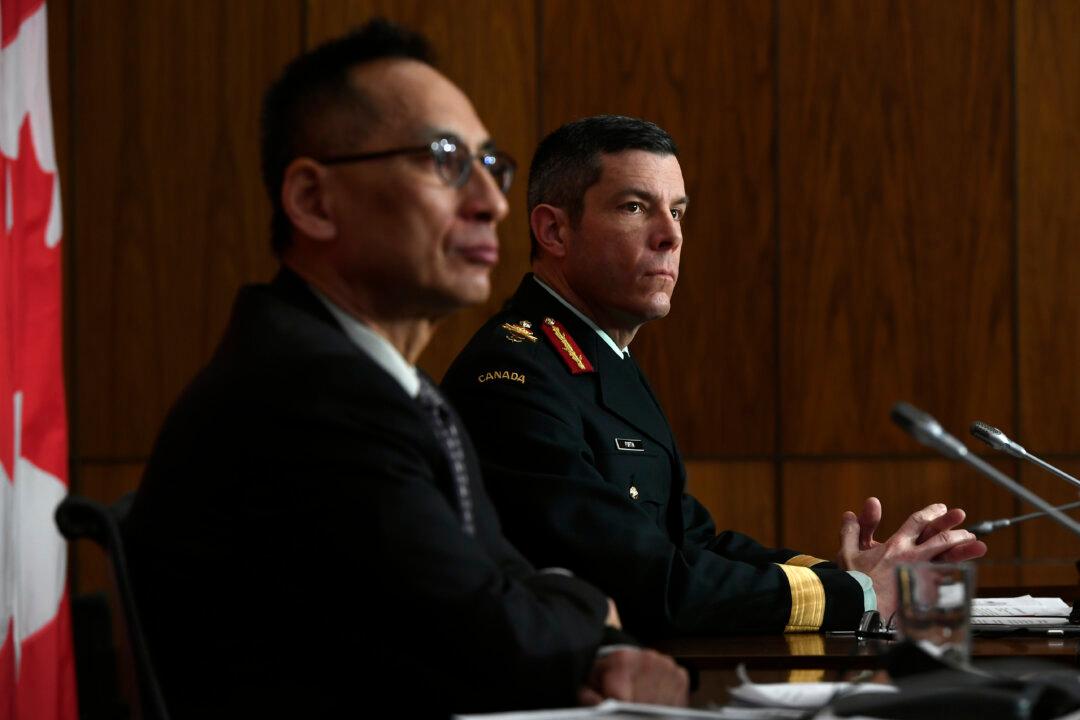Government officials say Canada is currently facing a limited supply of COVID-19 vaccines to distribute and vaccinate at scale, but the country can expect to receive over one million doses a week starting April.
Canada’s COVID-19 logistics team is facing challenges helping provinces and territories “ramp up” their vaccination programs due to limited supplies of vaccines on hand, said Maj.-Gen. Dany Fortin, vice president of Logistics and Operations at Public Health Agency Canada, on Thursday. But the team expects to receive more than a million doses of Pfzier and Moderna COVID-19 vaccines per week beginning in April.





